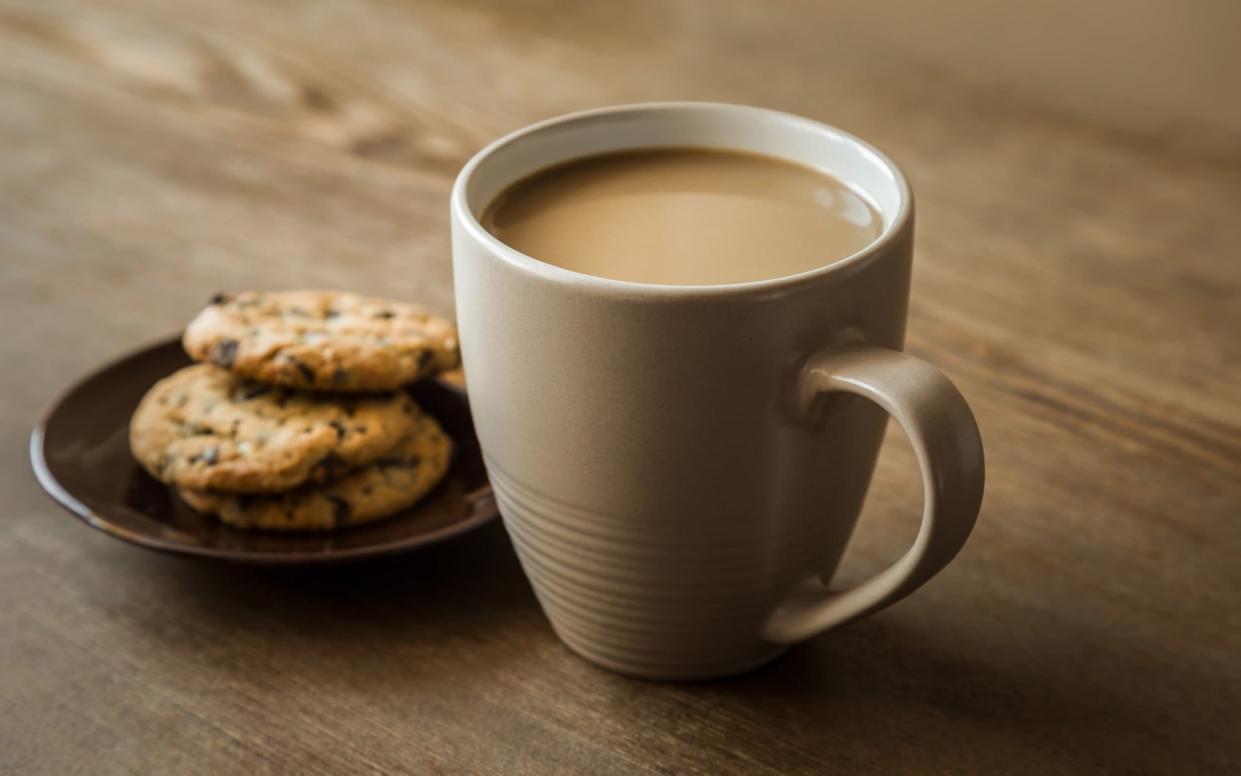Drinking hot tea or coffee almost triples your risk of oesophageal cancer

Drinking hot coffee or tea almost triples your risk of oesophageal cancer, a study from the University of Cambridge has found.
Roughly 10,000 people a year in the UK are diagnosed with oesophageal cancer and the latest findings suggest a person can reduce their risk by giving up hot drinks.
Data from more than half a million people in the UK from the UK Biobank looked at people who drink more coffee than others and looked at their cancer risk.
“We know the genetic score that we're looking at increases predisposition to drinking coffee but it also increases propensity to drinking more tea as well,” study author Dr Stephen Burgess told The Telegraph.
The findings, published in the journal Clinical Nutrition, show that coffee consumption did not increase the risk of any cancers except for esophageal.
People who were the most likely to drink coffee and tea were found to be at 2.8 times the risk of oesophageal cancer than non-drinkers. But the study also asked participants how they like their coffee, either “warm”, “hot” or “very hot”.
Those who prefer a tepid brew were found to be at 2.7 times more risk than non-drinkers, while “hot” had a 5.5-fold increase in risk, and “very hot” 4.1 times greater.
The team did not collect data on how much coffee a person drank, so is unable to say if the volume of hot drinks is linked to higher risk.
“There was evidence for a causal effect of coffee increasing oesophageal cancer, even in people who have self-reported preference for warm drinks,” said Dr Burgess.
‘Thermal injury’ the most plausible cause
But the researchers say that while there is no increased risk of other cancers from coffee, the most likely explanation is that the heat of hot drinks damages the throat, elevating the risk of dangerous cells forming.
“It seems to be that thermal injury is the most plausible hypothesis, and that would explain why we're seeing evidence of effect even in coffee non-drinkers who we assume would be tea drinkers,” Dr Burgess said.
“It would be unreasonable to say that this is telling people ‘instead of coffee, you should drink tea instead and you'll be perfectly okay’.
“I think that's the opposite to what we're actually saying. It appears to be thermal injury rather than anything specific about coffee or caffeine.
“Avoiding drinking coffee at too high a temperature is really the conclusion. If you are feeling as if there's this damage to your throat then that's something which is worth being aware of and potentially dialling back on.”
No link found to most common forms of cancer
However, he added that coffee drinkers should not be overly worried, as the study found no link to the most common forms of cancer.
“I think overall it's good news for coffee drinkers that actually coffee was not associated with most forms of cancer and certainly the most common forms of cancer,” Dr Burgess added.
Dr Susanna Larsson, an epidemiologist based at the Karolinska Institute who was involved in the study, said: “Our findings strengthen the evidence that coffee consumption has a neutral effect on risk of common cancers.”

